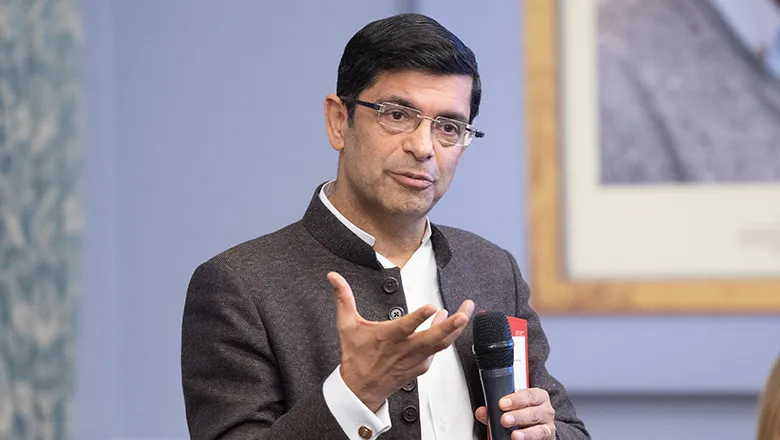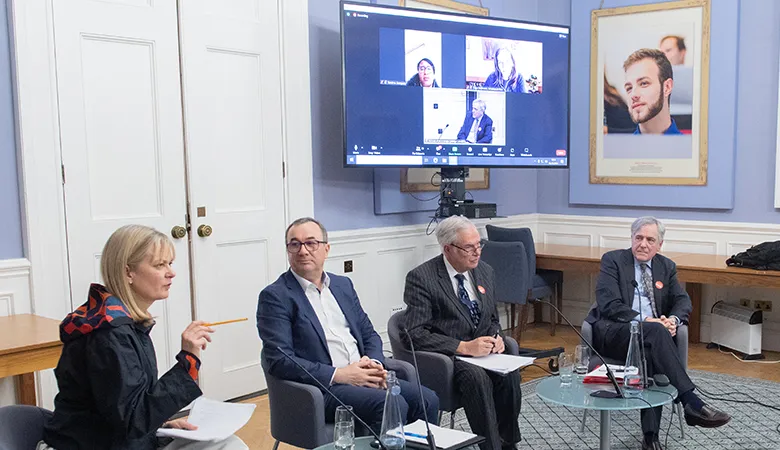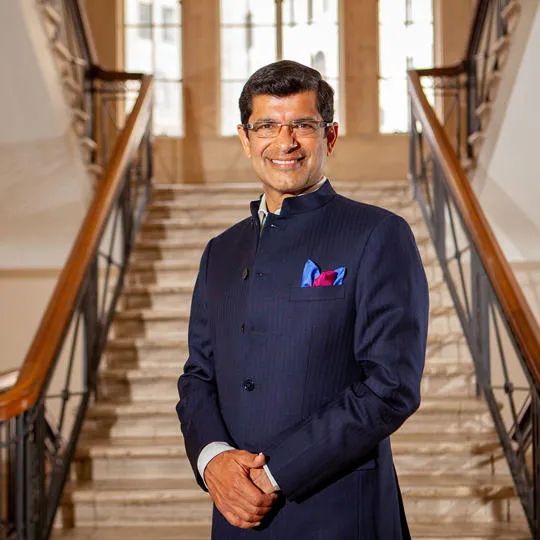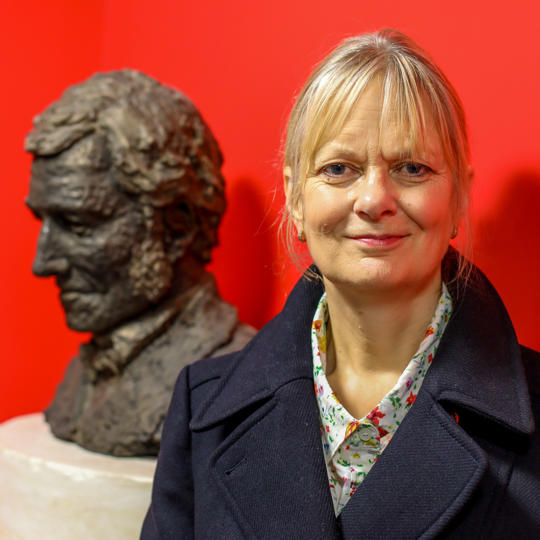The concept of academic freedom is a social concept for the betterment of all of society. The reason academic freedom is and should be protected is because it is a public good.
Professor Shitij Kapur, King's President & Principal
09 December 2022
We need to understand academic freedom if we are to protect it
The inaugural King’s Presidential Series event explored the difference between academic freedom and freedom of speech, and the price we will pay as a society if academic freedom is lost

Experts on academic freedom joined King’s President & Principal Professor Shitij Kapur this week to share their thoughts on the need to reimagine academic freedom at the inaugural event from a new King’s Presidential Series.
Professor Shitij Kapur said there can be confusion between freedom of speech, which is a civil right for all, and academic freedom which “arose to protect academics to research, teach and profess in areas where they had scholarly expertise”.

At the event on 5 December, Professor Liviu Matei, Head of the School of Education, Communication & Society at King’s, presented a background paper on the need to reimagine academic freedom and said there is a lack of a conceptual reference for academic freedom that is up to date, shared and effective.
Clare Robinson, Director of Advocacy at Scholars at Risk (SAR), and lead author of SAR's Free to Think 2020 report, explained to the in-person and online audience that there have been attacks on higher education around the world that endanger scholars, students, universities and academic freedom. She warned: “It is global, it is pernicious and it impacts on each and every one of us."
Tamires Sampaio, a lawyer and former Vice-President of the Brazilian Students’ Union, said it was vital that campuses must be places of debate and discussion and where freedom of ideas is encouraged. She also outlined how diversity of society needs to be part of the discussions about academic freedom, so it is not just about one place, group, gender or race.
The event, held in The Council Room in the King’s Building and chaired by Professor Linda Woodhead, F.D. Maurice Professor in Moral and Social Theology at King’s, also heard from David Lock, Secretary General of the Magna Charta Universitatum.
He said that academic freedom needs to be exercised effectively in the cultural context of each university if it is to strengthen universities' role in preserving our planet and improving health, prosperity and enlightenment around the world.
Professor Terence Karran, Professor of Higher Education Policy at the University of Lincoln, said surveys showed the majority of academics did not know what academic freedom actually meant and questioned how people can protect it if they don’t know what it is.
In response to a question from the audience, he explained that freedom of speech is a freedom given to everyone, but academic freedom is different - academics are peer-reviewed and have to speak the truth. And he warned that if academic freedom is lost, then it will be difficult to reinstate.
“If we as academics are not willing to stand up for academic freedom, what example are we setting for those we teach?”
Professor Terence Karran, Professor of Higher Education Policy, The University of Lincoln
Find out about more events on this topic
Sign up to hear about future events on academic freedom by emailing ecs@kcl.ac.uk.
Add the King’s Presidential Series on Academic Freedom webpage to your bookmarks, as we will post details of future events in the series here.



